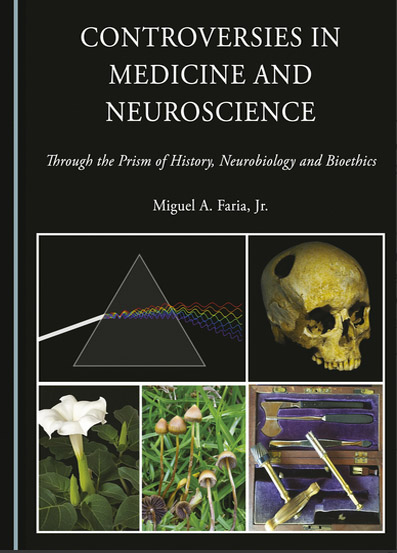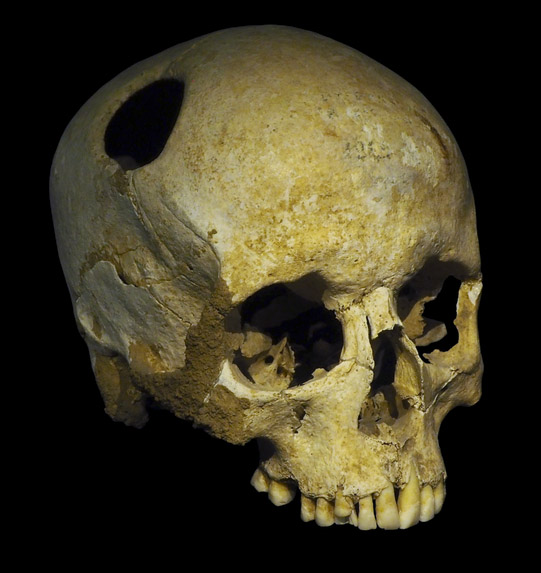
- Articles, Featured
Review of Controversies in Medicine and Neuroscience: Through the Prism of History, Neurobiology, and Bioethics by Miguel A. Faria, MD. Reviewed by Russell L. Blaylock, MD
I have known Dr. Miguel A. Faria for a very long time. He is a brilliant neurosurgeon, exceptional writer, and has written a great number of incredible opinion pieces as well as books on an array of medical subjects. His latest book, Controversies in Medicine and Neuroscience: Through the Prism of History, Neurobiology, and Bioethics (2023), is the best of all, which is saying a lot because all his books are expertly researched and written. This book is special for several reasons.
First, it is divided into several sections: a scientific section, a historical section, and a brilliant analysis of collectivism in medicine as well as the major things that are wrong with the actual practice of medicine.
Having a special interest in neuropsychiatry, Dr. Faria explores the functions of several major anatomical areas of the human brain. What makes this special is that he is not a reductionist in his thinking, and he is not a materialist. Yet as a good scientist, he understands the function of the anatomical areas of the human brain and how they interrelate. As an undergraduate student he studied clinical psychology extensively, and he demonstrates a remarkable understanding of the major psychiatric aberration of the personality.
Being a neurosurgeon and one also interested in the very same functions of the brain, I found Dr. Faria’s discussions on anatomical functions very well stated without resorting to scientific jargon, except where needed. He was very familiar with Dr. Eric Kandel, a groundbreaking pioneer in the function of this living machinery. Like me, Dr. Faria sees the brain as a very complex receiver, much like a radio. In other words, there is the brain and there is the “mind,” which is not anatomical.
Dr. Faria also has a great interest in violence and brain function. The brain has a very complex anatomical structure controlling violence, but it is also under the control of free will. He has a deep understanding of this connection. Importantly, the prefrontal cortex also regulates psychological impulses and when released, these uncontrolled impulses “act on their own.” Alcohol, as I tell many people, does not make a person do anything; it releases the orbitofrontal cortex (prefrontal cortex) that control those reflected-controlled violence pathways. The prefrontal area, as Dr. Faria explains, also tells a person the consequences of their intended action. The alcohol and drugs release this and allow the person to do what they truly want to do, free of consequences, in their mind.

Dr. Faria reviews many of the brain’s secrets that were solved by medical sleuthing and careful scientific study. Interestingly, he was a friend of the historical scholar Plinio Prireschi, MD, PhD, who spoke and read several ancient languages and wrote a multiple volume compilation of medical history.
In Part 4, Dr. Faria discusses a very important topic that, sadly, is all but forgotten by the medical profession today—medical ethics. He compares traditional medical ethics with what now dominates the medical world—bioethics. In the recent past, all physicians upon graduation from medical school took the Hippocratic Oath, compiled by the Greek philosopher and physician, Hippocrates. Basically, it says that as a physician, one’s concern should always be with the patient first and not the state. Unfortunately, this is no longer the principle followed today—rather most physicians follow bioethics, and Faria succinctly defines and discusses the two. In connection with this, he discusses the importance of religious morality, which is inseparable.
One of the really strong points of the Controversies in Medicine and Neuroscience is the in-depth discussion of “Controversies in Health Policy—Corporate Socialized Medicine.” This not only should be read by all physicians but also by people in general. Dr. Faria destroys many of the myths circulated by the medical collectivists and reviews true fee-for-service medicine. I have had many general practitioners tell me that they would gladly charge each patient a $100 flat fee, and see the patient for all conditions for that year. That would solve the problem of cost.

Dr. Faria next discusses in this remarkable book a chapter dedicated to plagues and epidemics in history, which is truly a very interesting chapter. He covers, in separate chapters, hygiene and sanitation and their role in drastically reducing disease and in raising the life span of the average person, and he discusses pestilential diseases. I really enjoyed this chapter.
The pharmaceutical companies spread among doctors the lie that vaccines solely reduced contagion and death caused by the great epidemics. In truth, it was the advances in hygiene, as virtually all books on public heath stated boldly until recently.
The final chapter is a gracious discussion of the book, The China Virus, written by the eminent researcher Dr. James I. Ausman and me. Both of us are neurosurgeons. It should be read alongside my series of articles appearing in Surgical Neurology International on that very subject. The articles and The China Virus have been read internationally. We now have proof that the virus was intentionally created by turncoats in this country working with the Chinese Communist party and that the vaccine has actually killed over 8 times as many as were killed by the virus itself, this time even among the young and among pregnant women.
Controversies in Medicine and Neuroscience is well worth reading and studying. It should be standard on all doctors’ bookshelves and among interested laymen.
Reviewed by Dr. Russell L. Blaylock
Russell L. Blaylock, M.D. is the president of Theoretical Neuroscience Research, LLC, Canton, Mississippi, a
retired neurosurgeon, and the Associate Editor-in-Chief of the Neuro-Inflammation section of Surgical Neurology International (SNI). He has written numerous path-blazing scientific papers and books, including Excitotoxins: The Taste That Kills (1994), Bioterrorism: How You Can Survive (2001), Health and Nutrition Secrets (2002), Natural Strategies for Cancer Patients (2003), and The Liver Cure (2022).
This article may be cited as: Blaylock, RL. Review of Controversies in Medicine and Neuroscience: Through the Prism of History, Neurobiology, and Bioethics by Miguel A. Faria, MD. HaciendaPublishing.com, May 2, 2023. Available from: https://haciendapublishing.com/review-of-controversies-in-medicine-and-neuroscience-through-the-prism-of-history-neurobiology-and-bioethics-by-miguel-a-faria-md-reviewed-by-russell-l-blaylock-md.
Controversies in Medicine and Neuroscience: Through the Prism of History, Neurobiology, and Bioethics (2023) by Dr. Miguel A. Faria, was published by Cambridge Scholars Publishing in Newcastle upon Tyne, United Kingdom. You can order the book directly from the Cambridge Scholars Publishing website. It is a beautiful hardback book, fully illustrated with black and white photographs, including an insert with glossy color prints. In addition, PAPERBACK copies are now available at the reduced price of £38.99. The author discount of 40% means you can buy copies of the book for £23.99. The author discount code is AUTHOR40 and the discount can be used by friends, family, and colleagues for both editions. The code is to be used when buying directly from the publisher’s website.
Copyright ©2023 HaciendaPublishing.com
1 thought on “Review of Controversies in Medicine and Neuroscience: Through the Prism of History, Neurobiology, and Bioethics by Miguel A. Faria, MD. Reviewed by Russell L. Blaylock, MD”
This is one of the very best, exceedingly well-written, concise, researched books I have read in the neurosciences! Dr. Miguel A. Faria Jr. is not only a world-recognized Neurosurgeon, but also a historian with an incredible grasp of the sociopolitical issues confronting not only medicine, but our society. I highly recommend it!— 5.0 out of 5 stars, Amazon Review from Dr. Joseph C. Maroon, Dept of Neurological Surgery, Univ of Pittsburgh Medical Center.